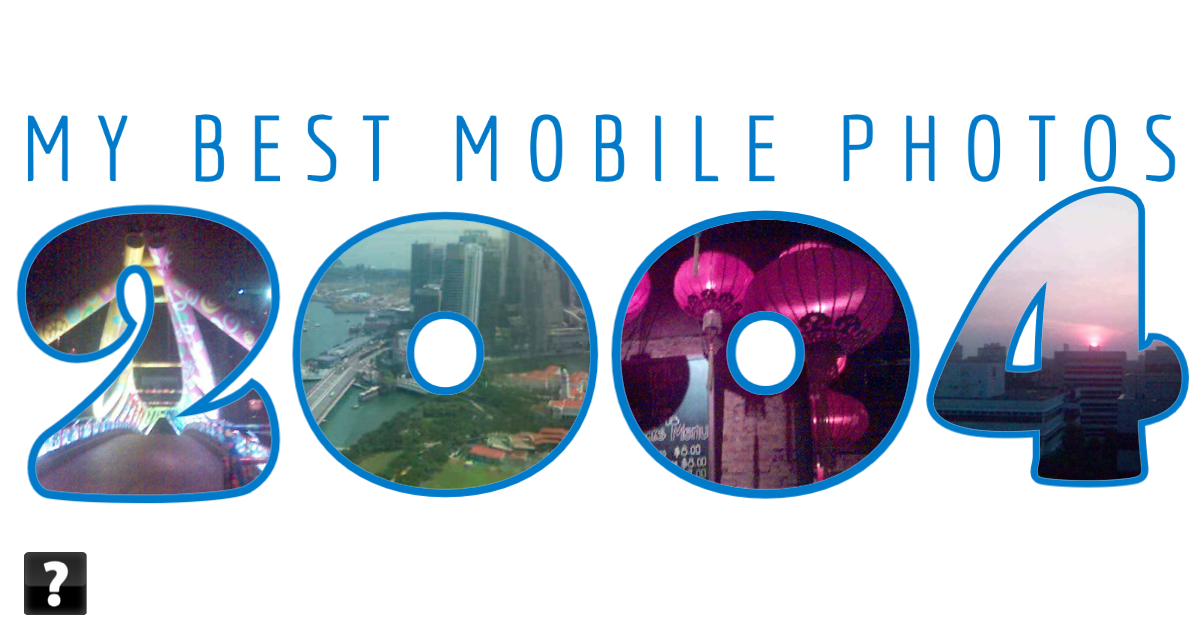The idea of American exceptionalism has eaten itself, cannibalised by the very people who most believe in the idea. A rich, autocratic president disrespecting an election result and whipping up his supporters to use violence and intimidation to cling to power is, for too much of the world, the norm.
Category: ranting
Random thoughts, frustrations, ideas and opinions. Quality not guaranteed, consume only under adult supervision
Day 15,707…
Another trip around the sun. 15,707 days (inclusive of today) or:
- 43 years and 1 day
- 516 months and one day
- 2243 weeks and 6 days
- 376,968 hours
- 22,618,080 minutes
- 1,357,084,800 seconds
At times it felt like there were that many days in just 2020! <sarcasm> Thanks COVID-19!</sarcasm>
Calculations according to timeanddate.com [timeanddate.com].
In Pocket’s Best of 2020 [getpocket.com] list I came across this article on The People Who Prioritize Friendship over Marriage [theatlantic.com]. Interesting article, you should read it.
A couple of random poorly connected thoughts on this:
- I’ve pontificated before on this blog about an idea that is related to this. In this post on The Separation of Marriage and Civil Union [confusion.cc] (five years before the Supreme Court ruled in Obergefell v. Hodge [wikipedia.org], legalizing same-sex marriage throughout the US). I noted that Marriage is a religious idea and in a secular state, like America with the constitutional separation of church and state, it would be better to leave marriage to religions and out of state matters. To do this you need to remove any distinctions, advantages and disadvantages of being married from law. Replace the religious idea of marriage with a secular idea of a civil union (or some other phrase if that is too loaded) such that any legal or commercial issues which are today based on marriage would be instead based on civil union. Whats more a civil union, is not a romantic thing and need not be between romantic partners, so it could be between friends as described in The Atlantic’s article. The article comes close to the same idea:
[Elizabeth Brake, a philosophy professor at Rice University whose research focuses on marriage, love, and sex], takes issue not just with cultural norms that elevate romantic relationships above platonic ones, but also with the special status that governments confer on romantic relationships. Whereas access to marriage currently hinges on (assumed) sexual activity, Brake argues that caregiving, which she says is “absolutely crucial to our survival,” is a more sensible basis for legal recognition. She proposes that states limit the rights of marriage to only the benefits that support caregiving, such as special immigration eligibility and hospital visitation rights. Because sexual attraction is irrelevant to Brake’s marriage model, friends would be eligible.
Rhaina Cohen in The People Who Prioritize Friendship Over Marriage [theatlantic.com], published in The Atlantic.
- I’ve always heard that the most successful, long term, marriages are those that begin or become close friendships. So breaking the idea of life-long legal entanglement from the idea of romantic love and opening it to friendship seems like a good idea.
- Despite #1 and #2… I can’t even begin to imagine the changes to day-to-day society that would need to happen for this to be normal. Imagine you are ‘married’ to someone, living with them, I assume, but at the same time have a legal civil union with a lifelong friend. If you die the friend is the main beneficiary (unless your Will say otherwise). You could jointly file takes with someone you are not living with? And who might be living with someone else also? What rights and duties are their with respect to kids from any marriages the two people in a civil union have? And you don’t need to get married to have kids —you don’t need to be married today but it’s still the norm, if there are no legal benefits to being married then maybe people will stop doing it unless they are highly religious. There are so many little things, the traditional idea of what a marriage is is so ingrained, even with the opening of marriage to same-sex couples…
- Urban Dictionary has a few definitions of Hetero Life Mate [urbandictionary.com], including one that says
A best friend who is so close, that were they not to match your sexual orientation, you would be married to them. Other sexual orientations may use “homo lifemate” or equivalent.
Pointing out that if there can be hetero lifemates there must also be homo lifemates. So maybe we need a better, less bigoted term. Another definition for Hetero Life Mate on Urban Dictionary notes that it’s basically a synonym for “Platonic Soulmate” [urbandictionary.com]. - And finally, Kevin Smith had this shit figured out in the View Askewniverse [wikipedia.org] at least by 1999 in Dogma and maybe way back in 1994 in Clerks:
Oh, I’m Jay, and this is my hetero-lifemate Silent Bob.
Jay, in Dogma [quotes.net].
Maybe Platonic Soulmate is a better term than Hetero Lifemate, given the issue of bigotry that goes with the use of hetero and homo… but as a lifelong fan of Kevin Smiths movies I’m sticking with Hetero Lifemate. And I confess I wrote this whole post just so I could quote Jay.
My Best Mobile Photos — 2005

I started 2005 using the same Sony Ericsson K700i I took my best 2004 mobile phtos [confusion.cc] with. I used it for the first half of the year, and the only photo worth sharing during that time that is not a portrait is another panorama:

The photo stitching is much better in this one, as the camera was sitting on the table when I took all the photos, I just had to rotate it for each shot. So maybe, just maybe, the software was good and the photos in that shot of the Singapore CBD skyline I shared from 2004 were really not level.
Moving on. At some point in 2005 I got a new phone, one that I loved, I think it was the best phone on the market at the time and I can’t understand why it was not more popular. The Sony Ericsson Z800i. A flip phone with a rotating 1.3 megapixel camera, a step up from the K700i’s 640×480 (with an “extrapolation mode” which output photos at 1280×960). The Z800i output photos at 1280×1024, which isn’t much bigger than the K700i’s extrapolation mode but they look much better:

There are still a serious lack of actual good photos in my library. Focus was an issue, on both the K700i and the Z800i. Also, action was an issue, even the slightest movement is blurred.
I actually went through two Z800i’s, as shortly after I got it my wife —now wife, then girlfriend— sent my new phone for a ride through the washing machine. One night after drinking I left it in my pocket and she decided do to the laundry early in the morning due to the smell of smoke and alcohol on the cloths. At the time I was living in a shared corporate flat and I didn’t even know the phone when through the wash, I found it on the table in the living room and just assumed I left it there. But when I tried to turn it on it was dead. I spent the afternoon waiting in Wisma Atria to see a Sony Ericsson agent to get it fixed, since it was nearly brand new. After waiting for my number to come up it took the agent all of 2 minutes to tell me the damage was not covered by the warranty as it was water damage. Apparently there is a little white square of material on the battery that turns blue when exposed to water. At first I couldn’t figure out how the phone got “submerged” and argued that it could only have been sweat or a splash from normal usage, I had not dropped it in water. I was only when we got home and my co-worker cum roommate told me he found the phone in the washing machine when he went to do his laundry that we managed to piece the story together.
So I had to buy a new phone… I don’t remember how much it cost but I do remember it being painful and my wife being surprise I did not get angry with her. C’est la vie.
Anyway, here are a couple of more photos for the Z8ooi that I can count as my best mobile phone photos of 2005. First a photo of the US flag from my hotel room in Washington DC on a trip back in July of 2005 to attend a wedding:

And… then there is this:

That’s my killer rabbit that used to look down on my cube in the office in Virginia wearing a hat I got at a St. Paddy’s day pub bash in 2002 in England. I gave the rabbit away to a coworker, and the hat eventually got trashed. C’est la vie.
My Best Mobile Photos — 2004

I have embarked on a mission to cleanup my mobile phone photo library. As long as I’ve been taking photos with my mobile I have been ignoring them after I back them up. These days I back them up to Lightroom and I have even managed to find and imported photos from before I used Lightroom into my Lightroom library. There are a few gaps but I have a long mission ahead.
My library of mobile phone photos goes back as far as 29 September 2004. There are a couple of shots of people I was working with at the time, which I won’t post, and then this gem:

That’s the Alkaff Bridge [wikipedia.org] over the Singapore River, just down the quay from the hotel I was living in (The Gallery Hotel, no longer there) in September 2004. Having arrived from the US on, as I recall, September 4th (thought looking back at my 2004 post here on Confusion I seem to have left the US on August 30th [confusion.cc]… I know you skip a day and I took a crazy long, multi-stopover route, but it does not seem to add up, maybe I left well after midnight, I can’t remember.)
In any case, that photo was taken on a SonyEricsson K700i [wikipedia.org]. I’m sure I should have photos that were taken on even older photos, specifically the T610 [wikipedia.org] but it seems those are lost to time, so the K700i are my oldest. They are mostly crap photos, but there are some fun shots of people I worked with.

For some reason about half of the photos from the K700i are 1280×960 while others are only 640×480.

But the K700i did have a fun panorama function built in. I made a few attempts but it wasn’t always so good at handling my inherent inability to keep the camera level from one shot to the next (a problem I have with my DSLR too). These buildings look like they are drunk or auditioning for Inception or Dr. Strange a few years early:

So I really don’t have any good mobile phone photos from 2004, the title of this post is a bit misleading. I plan to post a few mobile phone photos for each year as I continue my cleanup. We’ll see how much the phones and my ability to use them advanced. Not sure what year I’ll stop at. I started using Lightroom mobile to take photos on my phone sometime in 2017 so that’s a logical place to stop… let’s see if I can get that far.
As a final aside, the photo of Alkaff bridge was taken on the night of September 29th. According to Confusion [confusion.cc] I visited the Chinese Gardens to view the lanterns setup for the Mid-autumn festival with some colleagues. But I don’t have any photo, or DSLR photos of that night…
